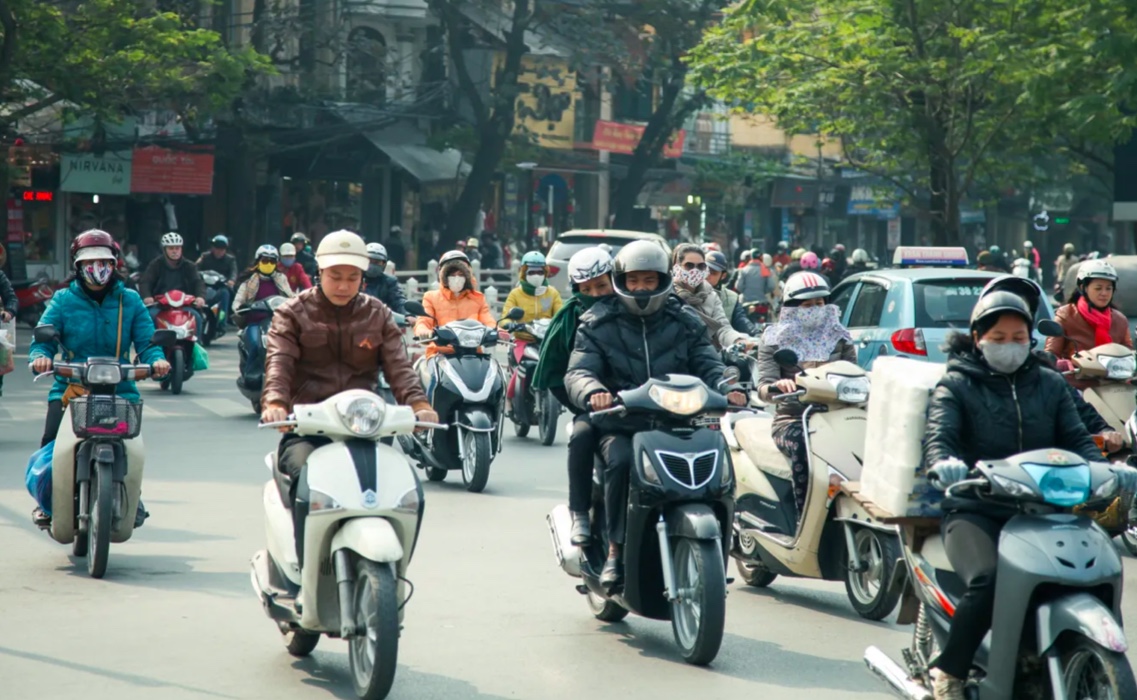According to the “Summary of Notifications on the Employment Status of Foreign Nationals” published by the Ministry of Health, Labor and Welfare, there are 1.66 million foreign workers (as of 2019). Of these, the largest number is Chinese, but the number of Vietnamese has increased rapidly in recent years, and the number of Vietnamese and Chinese has finally reached almost equal numbers. The year-on-year growth rate is highest for Vietnamese, with the number of Vietnamese workers surging from 310,000 in 2018 to more than 400,000 in 2019.
Background of the Increase in Vietnamese Working in Japan
Remittances from Vietnamese working abroad to their families support part of the Vietnamese economy, and the government is promoting sending workers overseas with the aim of becoming a labor exporting country. In addition, many Japanese companies have established operations in Vietnam, and the number of Vietnamese who wish to work in Japan continues to increase each year. Here, we will explain why the number of Vietnamese working in Japan is increasing in three categories: technical intern trainees, foreign students, and work visas.
Increase in Technical Intern Trainees
Due to the constant shortage of labor, Japan has been unable to maintain its workforce without accepting foreign personnel in various fields, such as construction sites and manufacturing plants in recent years. The system was expanded to include the extension of the practical training period and the expansion of the number of trainees accepted. In addition, the maximum period of practical training, which was originally three years, was extended to five years, opening up opportunities for technical intern trainees to work in Japan for a longer period of time.
In the past, the majority of technical intern trainees were Chinese, but the number of Chinese technical intern trainees coming to Japan to work has been declining in recent years as China’s rapid economic development has led to an increase in the number of wealthy and middle-income earners. In order to fill these vacancies, many Japanese companies have begun to accept Vietnamese technical intern trainees. Thus, the number of Vietnamese technical intern trainees is increasing against the backdrop of the expansion of the technical internship system and the decrease in the number of Chinese technical intern trainees.
Increase in the Number of Foreign Students
On the 29th of July in 2008, the Japanese government announced the “300,000 Foreign Students Plan” and eased visa requirements for foreign students, which triggered many Vietnamese and other foreigners to apply to study in Japan. The number of Japanese language institutes, vocational schools, and universities equipped to accept international students increased so that they could study in Japan, and by 2019, the plan had been achieved, with more than 310,000 international students accepted into Japan.
While part-time work for international students is prohibited or limited in hours in the U.S. and European countries, Japan allows international students to work part-time for 28 hours per week and 40 hours during vacations if they apply for activity other than that permitted under the status of residence. Studying in Japan allows students to cover part of their tuition and living expenses through part-time work, which is convenient for Vietnamese students who do not have much financial means.
In addition, since many large Japanese companies have advanced into Vietnam, the ideal for international students was to work for a Japanese company directly after studying in Japan, and then return to the Vietnamese branch office in the future to work as a local executive. I studied in Japan with the same dream. In recent years, the number of foreign students who come to Japan with a foreign student visa to make a living and do not concentrate on their studies has been increasing, but I will not discuss this here.
Increase in Work Visa Human Resources
Since foreign students obtain a work visa after graduating from a university or vocational school and find a job at a company, the number of work visa holders is naturally increasing. In the past, the number of people from overseas who applied directly for jobs at Japanese companies and obtained a work visa to come to Japan to work was in the minority, but over the past five years, the number of companies that want to bring in foreigners has gradually increased, and the number of Vietnamese who have obtained a work visa and are working in Japan without having studied in Japan is increasing.
In many cases, when Vietnamese who have never studied in Japan obtain a work visa and work in Japan, the local subsidiary hires the Vietnamese and then transfers them to Japan, or the Japanese company hires Vietnamese personnel with technical skills directly. Recently, there has been an increase in the number of cases in which a skilled person with Japanese language skills is hired at the same time as the technical intern trainees are accepted.
Reasons for Vietnamese to work in Japan
Salary
The monthly salary for a fresh graduate in Japan is approximately 180,000-250,000 yen, while in Vietnam it is around 30,000 yen. Of course, if you have foreign language skills such as English or Japanese, your salary will go up even if you are a fresh graduate. For example, if you have about N2 of the Japanese Language Proficiency Test (JLPT), you can receive a salary of 50,000 to 100,000 yen more than the average. However, the rate of salary increase in Vietnam is relatively high compared to Japan, with a 5-10% raise every year being the norm. IT engineers with 5 to 7 years of experience can earn a salary of 150,000 to 200,000 yen even if they work in Vietnam. It is true that some people do not bother to go to Japan to work because they can save money by working in Vietnam with cheaper rent and prices.
Therefore, not all Vietnamese want to work abroad for all types of jobs. However, since the salary of experienced workers in Vietnam is around 200,000, some fresh graduates may want to go to Japan for a higher salary.
Living Environment
Japan has a better working and living environment than Vietnam, with a well-developed social security system and corporate welfare system. Such a comfortable living environment is one of the attractions of working in Japan. In Japan, it is common for companies to provide health insurance for their employees, but in Vietnam, it is not easy to get health insurance. Also, in Vietnam, there is no government subsidy system for the birth of a child as in Japan. Therefore, many Vietnamese women are particularly concerned about the educational and living environment for their children, and there are many who would like to work and live in Japan for the long term, where the air is clean and the educational system is strong.




Comments